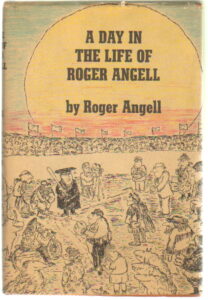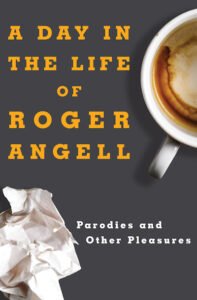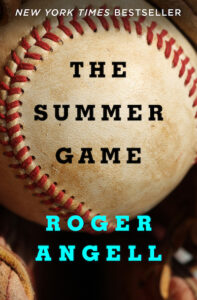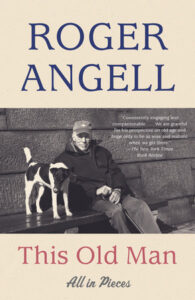Publishing Talks: An Interview with Shouvik Paul of CopyLeaks
July 27, 2023 by David
Filed under PublishingTalks, Technology
 Publishing Talks began as a series of conversations with book industry professionals and others involved in media and technology, mostly talking about the future of publishing, books, and culture. I’ve spent time talking with people in the book industry about how publishing is evolving in the context of technology, culture, and economics.
Publishing Talks began as a series of conversations with book industry professionals and others involved in media and technology, mostly talking about the future of publishing, books, and culture. I’ve spent time talking with people in the book industry about how publishing is evolving in the context of technology, culture, and economics.
Later this series grew to include conversations that go beyond the future of publishing. In an effort to document the literary world, I’ve talked with a variety of editors, publishers and others who have been innovators and leaders in independent publishing in the past and into the present.
These conversations have been inspirational to me on many levels. I have gotten to speak with visionaries and entrepreneurs, as well as editors and publishers who have influenced and changed contemporary literature and culture. I’ve also had the opportunity to speak with a number of friends and colleagues I have met over the many years I have been in the book business.
I met Shouvik Paul a number of years ago when he was working for SharedBook, a company for whom I did some consulting work. He is a really smart guy and has been involved in a variety of technology related start ups during his career. Shouvik is currently the Chief Operating Officer of Copyleaks Inc., an award-winning AI-based text analysis company whose primary work is to identify potential plagiarism and paraphrasing across nearly every language, detect AI-generated content, and provide generative AI governance and compliance solutions. For obvious reasons, this kind of technology will be of interest to all kinds of publishers and content owners.
CopyLeaks has been working in AI for years, and now that AI in many different applications will become crucial for the book industry to understand and apply, I thought this would be a great opportunity for me and for Publishing Talks listeners to learn more about where this is all headed from someone who knows alot more than most of the rest of us.
I think this conversation will spur your thinking in a variety of ways. It certainly has inspired me to learn more about AI and how it can be used, what the risks of using it are, and how we need to think about AI both within the book business and in our overall culture. Don’t be surprised if this changes your outlook on the way AI will affect our business and hopefully it will inspire you as to learn more about it as well. The book industry cannot afford not to recognize how this technology will change our lives in so many ways.
Shouvik lives in Manhattan with his two daughters; he wanted me to note here that they refer to him as “That guy who has to stop and pet every dog that passes by” — which is a pretty great recommendation, in my view.
Podcast: Play in new window | Download
Writerscast: David Wilk interviews Roger Angell
October 1, 2020 by David
Filed under Non-Fiction, WritersCast
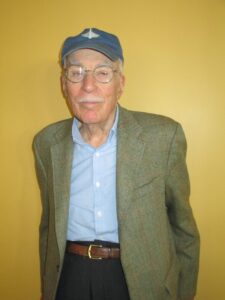 A couple years ago, in the process of researching the mostly unknown and under-appreciated New Yorker writer Robert M. Coates, I reached out to Roger Angell, who knew Coates during his many years of writing for and working at The New Yorker (and whose mother, Katharine Sergeant Angell White, and stepfather, E.B. White, knew Coates well from the earliest days of the magazine in New York and elsewhere). I wanted to learn as much as I could about Coates, and in the process, had the distinct pleasure of talking to one of the greatest writers of our time.
A couple years ago, in the process of researching the mostly unknown and under-appreciated New Yorker writer Robert M. Coates, I reached out to Roger Angell, who knew Coates during his many years of writing for and working at The New Yorker (and whose mother, Katharine Sergeant Angell White, and stepfather, E.B. White, knew Coates well from the earliest days of the magazine in New York and elsewhere). I wanted to learn as much as I could about Coates, and in the process, had the distinct pleasure of talking to one of the greatest writers of our time.
After telling me some interesting first-hand remembrances of Coates, Roger was kind enough to sit or an in-person interview with me in his apartment in New York along with his wife Peggy Moorman. It’s my honor to publish this interview now to celebrate Roger Angell’s 100th birthday. His prodigious, meticulous, and far-ranging memory is a match for his remarkable abilities as a writer.
Roger has always lived in New York City, and spent summers in Brooklin, Maine. He graduated from Pomfret School and Harvard University, served in the Air Force in World War II, first as an instructor in machine guns and power turrets, and then, in the Pacific, as an editor and reporter for the GI magazine Brief.
In 2014 Roger was inducted into the writers’ section of the Baseball Hall of Fame, and then in 2015 he was deservedly elected to the American Academy of Arts and Letters.
It is impossible to speak about and with Roger Angell without mentioning his writing about baseball, for which he is best known, including the classic books, The Summer Game and Five Seasons: A Baseball Companion, as well as a number of great shorter pieces that appeared first in the The New Yorker.
Angell’s earliest published works of short fiction and personal narratives. Several of these pieces were collected in early books, The Stone Arbor and Other Stories (1960) and A Day in the Life of Roger Angell (1970).
Roger first contributed to the The New Yorker in March 1944. He began writing about baseball in 1962, when William Shawn, then the editor of The New Yorker sent him to Florida to write about spring training and over the course of several decades produced some of the best baseball books ever written, inspiring countless readers with his brilliant descriptions of baseball games and players, and of course, fans of the game.
In a review of Once More Around the Park for the Journal of Sport History, Richard C. Crepeau wrote that “Gone for Good”, Angell’s essay on the career of Steve Blass,”may be the best piece that anyone has ever written on baseball or any other sport”.
While Angell has been praised fulsomely for his baseball writing, I’d prefer to think of him as simply one of the better literary stylists of our time. Listening to Roger Angell talk about books, writers and his writing life was one of the great pleasures of my own literary life, which I am pleased to share with you here.
Roger turned 100 on September 19, 2020. Happy Birthday Roger! And thank you and Peggy, for giving me the opportunity to speak with one of my literary heroes.
“Angell writes about baseball the way M.F.K. Fisher did about food, as a metaphor for life’s complexities of desire, defeat, utility and beauty.” — Phillip Lopate
This article in The New Yorker by David Remnick – “Roger Angell Turns 100” – is a must-read piece.
7 Must-Read Roger Angell Books: Legendary essays on baseball, reflections on aging, and so much more. Stephen Lovely, The Archive. 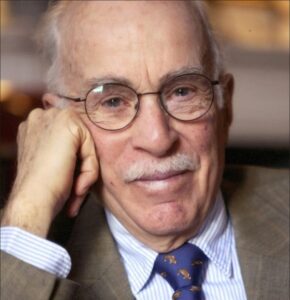
List of Roger Angell’s Books
A Day in the Life of Roger Angell
Five Seasons: A Baseball Companion
Game Time
Late Innings
Let Me Finish
This Old Man: All in Pieces
Once More Around the Park: A Baseball Reader
A Pitcher’s Story: Innings with David Cone
Season Ticket
Selected Shorts: Baseball, a Celebration of the Short Story
The Summer Game
Roger Angell Day – Celebrating Roger Angell – a 100th birthday celebration was held at the Friend Memorial Public Library in Brooklin, Maine, August 8, 2020 Photo by Bill Ray
Podcast: Play in new window | Download
Publishing Talks: David Wilk Interviews Howard Junker about Zyzzyva
June 30, 2020 by David
Filed under Publishing History
 Publishing Talks began as a series of conversations with book industry professionals and others involved in media and technology, mostly talking about the future of publishing, books, and culture. I’ve spent time talking with people in the book industry about how publishing is evolving in the context of technology, culture, and economics.
Publishing Talks began as a series of conversations with book industry professionals and others involved in media and technology, mostly talking about the future of publishing, books, and culture. I’ve spent time talking with people in the book industry about how publishing is evolving in the context of technology, culture, and economics.
Some time back, this series broadened to include conversations that go beyond the future of publishing. In an effort to document the literary world, I’ve talked with a variety of editors, publishers and others who have been innovators and leaders in independent publishing in the past and into the present.
One of my favorite lines of exploration for Publishing Talks has been a series of conversations with editors and publishers of independent presses and literary magazines. These enterprises are at the core of literary culture. They bring new voices to light, tap into the always changing literary culture, and bring it forward to readers and importantly, to other writers as well.
One of the most important literary magazines of the late twentieth and early twenty first century is Zyzzyva: The Journal of West Coast Writers & Artists, founded by Howard Junker in San Francisco as a purely West Coast platform in 1985. Howard and I knew each other in the eighties and nineties when I was involved in literary magazine and press distribution. I’ve always thought highly of Zyzzyva, its look and feel and the breadth and scope of its literary vision. Having a chance to talk for awhile with Howard about the magazine and his own literary output since leaving the magazine in 2010 was a welcome pleasure. He has a lot to say on alot of subjects. I truly enjoyed our conversation and hope you will find it as interesting and rewarding as I did.
Howard Junker was born in Port Washington, NY and grew up in Chappaqua, NY. He attended Amherst, Stanford, and the University of San Francisco. Junker has written for many magazines, including Architectural Digest, Art in America, Artforum, Esquire, Film Comment, Film Quarterly, Harper’s Bazaar, The Nation, The New Republic, New York, Newsweek, Playboy, Rolling Stone, The Village Voice, and Vogue.
He has also worked as a documentary filmmaker, television producer, construction carpenter, junior high school science teacher, fondue cook, P.R. flack, and technical editor.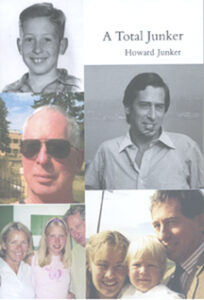
He founded Zyzzyva in 1985, and edited 90 issues before he retired at the end of 2010. He also edited five anthologies of work from the magazine, including AutoBioDiversity, as well as four Zyzzyva first novels and three Zyzzyva first collections of poems. There is much more about Howard to be found at his website here.
Photo above by Dennis Letbetter.
Podcast: Play in new window | Download
Publishing Talks: David Wilk interviews Mary Gannon of CLMP
May 30, 2020 by David
Filed under Publishing History, PublishingTalks, The Future
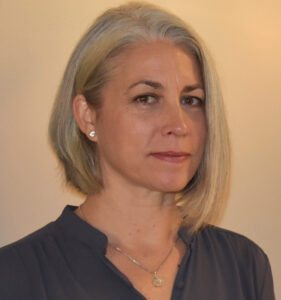 Publishing Talks began as a series of conversations with book industry professionals and others involved in media and technology, mostly talking about the future of publishing, books, and culture. As every media business continues to experience disruption and change, I’ve spent time talking with some of the people involved in our industry about how publishing might evolve as it is affected by technology and the larger context of culture and economics.
Publishing Talks began as a series of conversations with book industry professionals and others involved in media and technology, mostly talking about the future of publishing, books, and culture. As every media business continues to experience disruption and change, I’ve spent time talking with some of the people involved in our industry about how publishing might evolve as it is affected by technology and the larger context of culture and economics.
Some time back, this series broadened to include conversations that go beyond the future of publishing. In an effort to document the literary world, I’ve talked with a variety of editors, publishers and arts professionals who have been innovators and leaders in independent publishing in the past and the present, and continue to explore the ebb and flow of writing, books, and publishing in all sorts of forms and formats, as change continues to be the one constant we can count on.
Mary Gannon is the Executive Director of the Community of Literary Magazines and Presses, a now more than fifty-year-old nonprofit that is the primary organization in the US supporting the literary publishing community. There are hundreds of publications of all sizes that benefit from CLMP’s work, some well-established, others that are start-ups, and many others in various stages of growth and development. Some have institutional support, while the majority are supported only by the work of volunteers and readers.
Mary is herself a poet, and has worked in the literary community for many years. She well understands the struggles and needs of the community she serves. Before joining CLMP in 2018, she was the Associate Director and Director of Content for the Academy of American Poets, and before that she was the Editorial Director of Poets & Writers, the country’s largest nonprofit organization serving poets and literary writers.
Mary has published numerous articles about publishing and the literary field, as well as book reviews in a variety of journals. With her husband, Poets & Writers Magazine Editor-in-Chief Kevin Larimer, she wrote The Poets & Writers Complete Guide to Being a Writer, published by Avid Reader Press/Simon & Schuster April, 2020.
I’ve wanted to talk to Mary for some time about the state of the independent literary community. Now, with the COVID pandemic having such an impact, especially so on the arts (to the point of crisis for many) it’s an important time for a conversation about the current state and future prospects of literary publishing.
CLMP was founded in 1967 by writers and editors, including Russell Banks (whom I interviewed in 2018.) It offers a range of services and funding to magazines and literary publishers. Visit the CLMP website for more information or to make a donation in support of its vital work to support independent literary culture.
Disclosure: I am currently proud to be a member of the board of trustees of CLMP.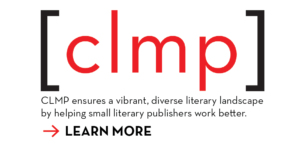
Podcast: Play in new window | Download
David Wilk Interviews Charles Bernstein of L=A=N=G=U=A=G=E Magazine
April 12, 2014 by David
Filed under Publishing History, PublishingTalks
 Publishing Talks began as a series of conversations with book industry professionals and others involved in media and technology about the future of publishing, books, and culture. As we continue to experience disruption and change in all media businesses, I’ve been talking with some of the people involved in our industry about how they believe publishing might evolve as our culture is affected by technology and the ebb and flow of civilization and economics.
Publishing Talks began as a series of conversations with book industry professionals and others involved in media and technology about the future of publishing, books, and culture. As we continue to experience disruption and change in all media businesses, I’ve been talking with some of the people involved in our industry about how they believe publishing might evolve as our culture is affected by technology and the ebb and flow of civilization and economics.
Recently, the series has expanded to include conversations that go beyond the future of publishing. I’ve talked with editors and publishers who have been innovators and leaders in independent publishing in the past and into the present, and will continue to explore the past, present and future of writing, books, and publishing in all sorts of forms and formats, as change continues to be the one constant we can count on.
It’s my hope that these conversations can help us understand the outlines of what is happening in publishing and writing, and how we might ourselves interact with and influence the future of publishing as it unfolds. Some of my latest interviews reflect my interest in the history of independent literary publishing, an area I have been involved in for a very long time.
Charles Bernstein has been a poet, editor, theorist and teacher of poetry and poetics, and is best known as a leader of what has become known as the LANGUAGE school of poetry. Between 1978 and 1981, Charles and poet Bruce Andrews edited the truly extraordinary journal they called L=A=N=G=U=A=G=E, that has become one of the most influential literary magazines of the last half century. That magazine, which circulated a relatively small number of copies during a relatively short period of time (13 issues), helped to establish and define what was then mostly an outsider and alternative challenge to contemporary poetry and thinking about reading poetry and which has now become a fixture in modern poetry and poetics. All the issues of the magazine are available online here.
Since that time, Charles has taught and continued to help establish influential organizations. He was the David Gray Professor of Poetry and Letters at the SUNY Buffalo and Director of the Poetics Program, which he co-founded with poet Robert Creeley. At SUNY, he co-founded the Electronic Poetry Center and is currently the Donald T. Regan Professor of English and Comparative Literature at the University Pennsylvania. He also is a co-founder of the outstanding and wonderful poetry audio archive at UPenn called PennSound (there’s a Writerscast interview with Charles, Al Filreis and Michael Hennessey here).
Our conversation about L=A=N=G=U=A=G=E continues my effort to document at least a small portion of the creative work of independent literary publishing of the late 20th century, that has been so important to the development of contemporary literary culture.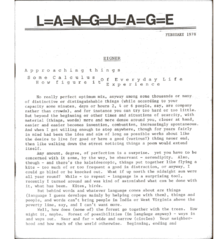
The anthology mentioned in the talk, The L=A=N=G=U=A=G=E Book (Poetics of the New), was published by Southern Illinois University Press, and is in print and available.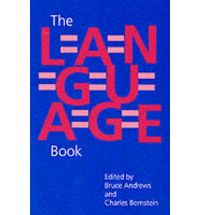 Note to listeners: as with all these historically based conversations about literary publishing, this is a relatively long listen, at about 48 minutes.
Note to listeners: as with all these historically based conversations about literary publishing, this is a relatively long listen, at about 48 minutes.
Podcast: Play in new window | Download
Publishing Talks: David Wilk interviews CLMP Director Jeffrey Lependorf
December 20, 2012 by David
Filed under Ebooks and Digital Publishing, Publishing History, PublishingTalks, The Future
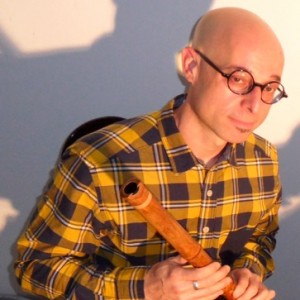 In this series of interviews, called Publishing Talks, I have been talking to book industry professionals and other smart people about the future of publishing, books, and culture. This is a period of disruption and change for all media businesses. We must wonder now, how will publishing evolve as our culture is affected by technology, climate change, population density, and the ebb and flow of civilization and economics?
In this series of interviews, called Publishing Talks, I have been talking to book industry professionals and other smart people about the future of publishing, books, and culture. This is a period of disruption and change for all media businesses. We must wonder now, how will publishing evolve as our culture is affected by technology, climate change, population density, and the ebb and flow of civilization and economics?
I hope these Publishing Talks conversations can help us understand the outlines of what is happening in the publishing industry, and how we might ourselves interact with and influence the future of publishing as it unfolds.
These interviews give people in and around the book business a chance to talk openly about ideas and concerns that are often only talked about “around the water cooler,” at industry conventions and events, and in emails between friends and they give people inside and outside the book industry a chance to hear first hand some of the most interesting and challenging thoughts, ideas and concepts being discussed by people in the book business.
Jeffrey Lependorf has an unusual perspective on publishing. He is the Executive Director of two nonprofit organizations: both the New York City based Council of Literary Magazines (CLMP) and the Berkeley, California based Small Press Distribution (SPD). CLMP provides support services to and advocacy for literary magazines and independent literary presses, while SPD provides distribution and sales services to the same general constituency (though not always the same presses and magazines). Both organizations have been on the scene for many, many years and their identities and services have changed significantly over time.
While the overall publishing industry has undergone sea changes in physical retailing and wholesaling that have created challenges for commercial publishers, those changes have caused massive disruption for hundreds of smaller literary presses and magazines, mostly by reducing their retail viability and forcing them to look for other means of reaching readers, including innovative approaches to digital publishing and direct to consumer sales. Independent presses and magazines may be quietly creating some incredibly valuable and interesting approaches to connecting with readers that could provide long lasting benefits for them, and models for larger publishers to emulate.
In this conversation, I took advantage of Lependorf’s unique perspective to discuss the past, present and future of independent literary publishing, both books and magazines, as well as some of the digital initiatives they have undertaken, and the specific activities of both the organizations he operates. It’s worth visiting both the CLMP and SPD websites. If you’re interested in what independent publishers are doing, CLMP has alot of information; if you’d like to see the books and magazines (and ebooks) that independent publishers are producing, visit SPD, where, it is important to note, you can browse and buy thousands of unusual and important publications directly (even though they also distribute to retailers like Amazon, B&N and many independent bookstores). Support independent literary publishing by buying their books whenever you can.
By the way, Lependorf has another career as a composer and performer whose work I also admire. Amazing stuff from an amazing person!
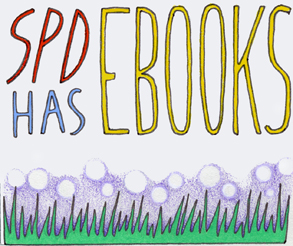 ALERT: this is another relatively long podcast, just over 43 minutes, but I believe it’s well worth your time.
ALERT: this is another relatively long podcast, just over 43 minutes, but I believe it’s well worth your time.
Podcast: Play in new window | Download
Publishing Talks: David Wilk Interviews Adam Hodgkin
August 2, 2010 by David
Filed under Ebooks and Digital Publishing, PublishingTalks, Technology, The Future
 In this series of interviews, called Publishing Talks, I have been talking to book industry professionals about the future of publishing, books, and culture. This is a period of disruption and change for all media businesses. How will publishing evolve as our culture is affected by technology, climate change, population density, and the ebb and flow of civilization and its economics?
In this series of interviews, called Publishing Talks, I have been talking to book industry professionals about the future of publishing, books, and culture. This is a period of disruption and change for all media businesses. How will publishing evolve as our culture is affected by technology, climate change, population density, and the ebb and flow of civilization and its economics?
I hope these Publishing Talks conversations will help us understand the outlines of what is happening, and how we might ourselves interact with and influence the future of publishing as it unfolds.
These interviews give people in the book business a chance to talk openly about ideas and concerns that are often only talked about “around the water cooler,” at industry conventions and events, and in emails between friends and they give people inside and outside the book industry a chance to hear first hand some of the most interesting and challenging thoughts, ideas and concepts being discussed by people in the book business.
Adam Hodgkin is one of the three publishing and technology experienced founders of Exact Editions, which started as a digital publishing solution for magazines to run on the iPhone (and of course now on the iPad as well). Exact Editions enables magazine publishers to sell “in-app” subscriptions, and notably, preserves the notion of the designed page, something that has been a concern for many publishers of illustrated books as well. I’ve been reading the Exact Editions blog for some time and have been impressed with Adam’s understanding of the emerging digital publishing universe. Something he wrote recently caught my attention immediately, as I have long been interested in the ways that authors, publishers and readers will learn to connect with one another in the online environment. Here’s what Adam wrote about the Apple environment upon which EE is built:
“The Apple e-commerce system works extremely well in my view and with the freemium method that we are adopting at Exact Editions it works in a way in which the ratios between ‘sampling’ and ‘purchasing’ are extremely informative. And as we get more data and get on top of it and learn how to do SRO (SampleRevisionOptimisation – a bit like SEO and it will be an equally dark art) the business of presenting the right amount of content to optimise sales will be established. We currently recommend working at about 8-15% exposure, but its guesstimatory at this point. Amazon must know quite a lot about this from their system, but I am not sure if they have issued any guidance to publishers.
The Apple system is better than most physical bookshops because it can put ‘samples’ in the hands of thousands (many thousands) of potential subscribers/purchasers much more efficiently than can be done with printed paper pages. The economics of this are pretty compelling even if the ‘sample’ to ‘purchase’ ratio is as low as 1%. And in most cases its quite a bit higher than that.
Will probably blog something a bit more informative about this in the next few days. But just let me say that I am simply ASTONISHED by how much more takeup there is for the iPad than for the iPhone. More in absolute terms, by quite a margin, even though there are maybe 40X as many iPhone/IPod touches in the market than iPads.
The iPad is turning out to be a hugely strong reading environment. Absolutely no question about it. And its darn easy to buy stuff on it that you might want to read.”
I thought it would be interesting to talk to Adam about Exact Editions and some of the things he and his colleagues have learned through the experience of working in the Apple environment, not only with magazine publishers but now as they are expanding into working with book publishers as well. My discussion with Adam covered his background and experience in traditional publishing, technology, and some of the lessons learned by the Exact Editions team in their work in digital publishing apps and proved to be as compelling as I had expected.
Podcast: Play in new window | Download


